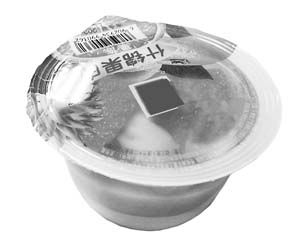
Contains a lot of dietary fiber, and the calories are low. It can treat constipation. Mothers are often heard to educate their children like this: “There is no nutrient in the jelly. Don't eat it.†In fact, this is not the case.
Low calorie, rich in dietary fiber
As the name implies, jelly should be a kind of food made from fruits. An important raw material that can "turn" fruit into jelly is "gum."
Algae gel is used in most jelly. This is a natural food additive, which is nutritionally called soluble dietary fiber. We know that fruits, vegetables, and coarse grains contain a certain amount of dietary fiber. The main nutritional effect on the human body is to regulate intestinal function, especially laxative. Jelly and their role is the same, eat more can increase the degree of intestinal moisture, improve constipation. At the same time, some oligosaccharides are also added to some jellies, which can regulate the intestinal flora, increase the number of good bacteria such as Bifidobacterium, enhance digestion and absorption, and reduce the risk of disease. According to the survey, most Chinese people eat high-fat and high-calorie foods in their daily diets. This is a common phenomenon. If it is impossible to supplement vegetables and fruits in time, it may be a good choice to eat more jelly to promote digestion. In addition, another major advantage of jelly is its low calorie content. It contains almost no thermal energy, such as protein, fat, etc. People who want to lose weight or maintain a slim body can feel comfortable eating.
Loss of nutrition in fruit
Jelly made from fruit juice and pulp retains most of the nutrients in the raw material, such as minerals, soluble dietary fiber, and vitamins, but it also causes a certain loss during production and processing. Therefore, do not think eating jelly can replace fruit.
Many jelly products also claim to add calcium and other nutrients, but do not easily believe that eating it can play a role in calcium. Because jelly contains a lot of dietary fiber, which leads to its rapid digestion in the human body, the added nutrients will soon be lost along with the body's metabolism, and the effect of supplementation is not very good.
Pay attention to 3 questions when eating
Jelly is a good snack, but when eating, pay attention to the following three issues: First, the production of jelly can not be separated from food additives, although they are safe, but children do not eat more, eat 50-100 grams a day That's it. Second, some jellies are "fruity" jellies. There are no fruit pulps in the raw materials for production. Instead, they are fruity flavors and food colors. The nutritional value of such jellies is not high, so it is best not to eat them. Third, when picking jelly, we must look at whether the packaging is firm and whether there is leakage or not. (Guo Xu, Director of the China Nutrition Society)